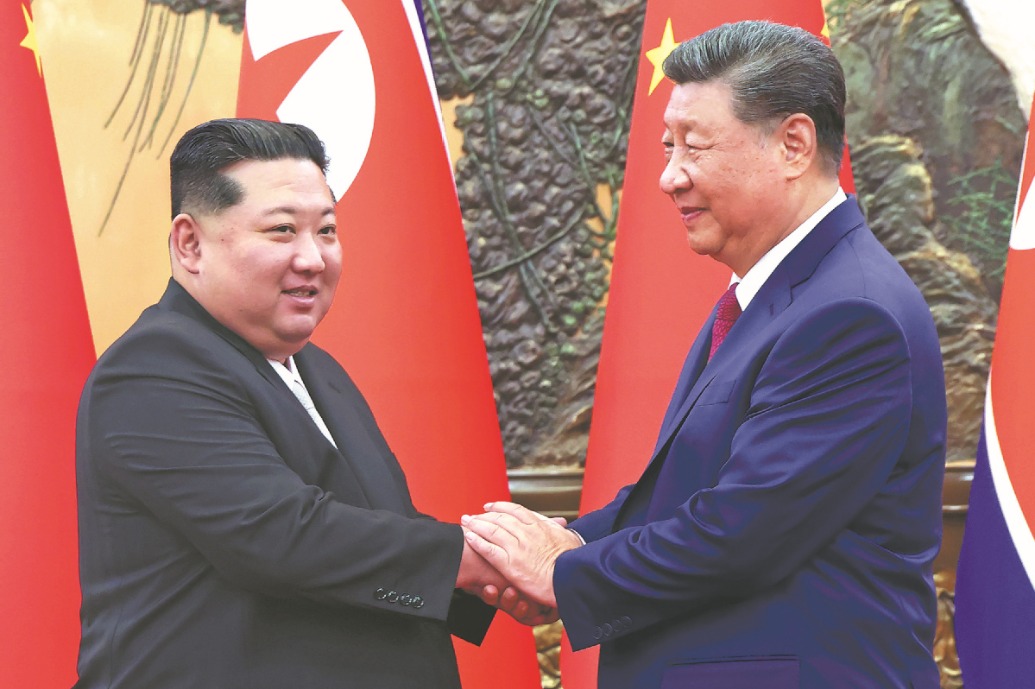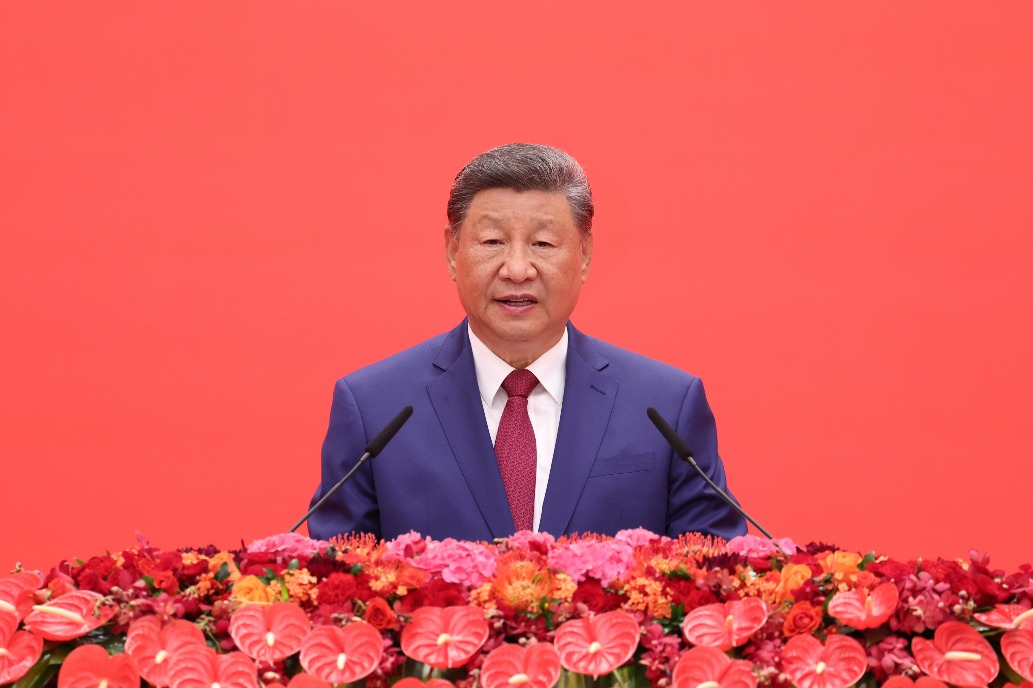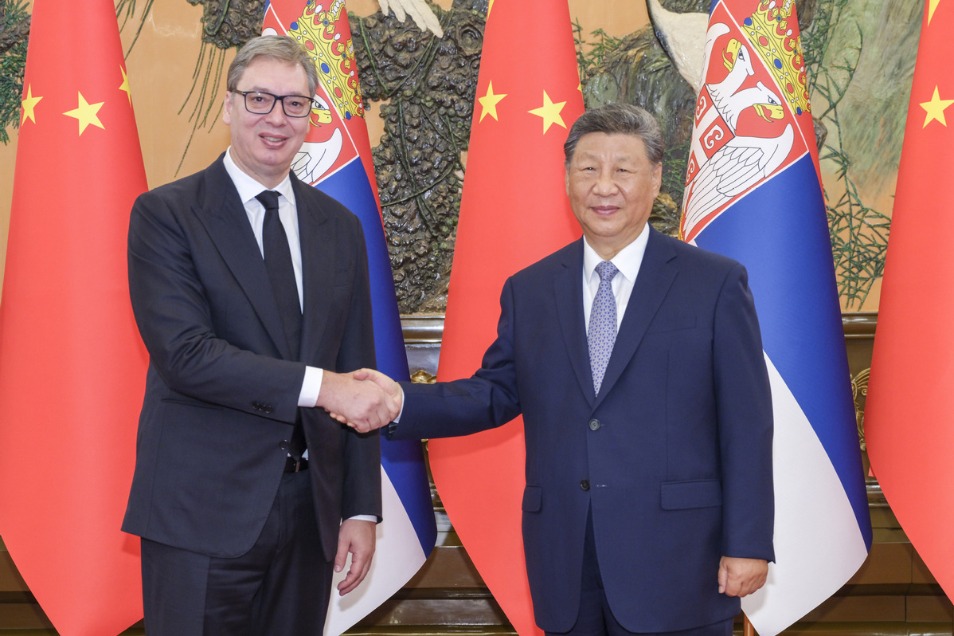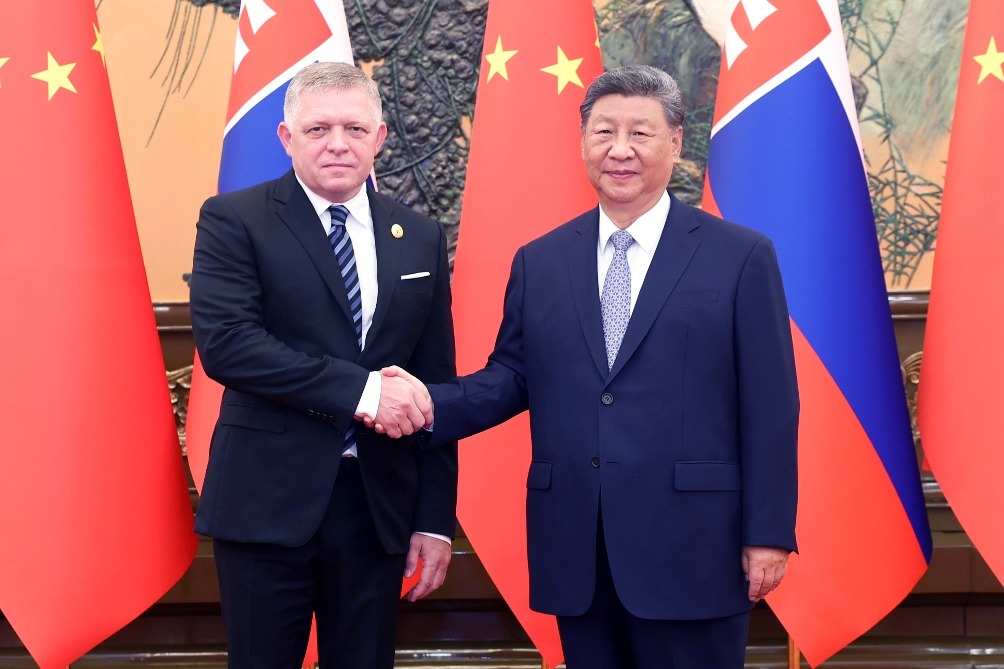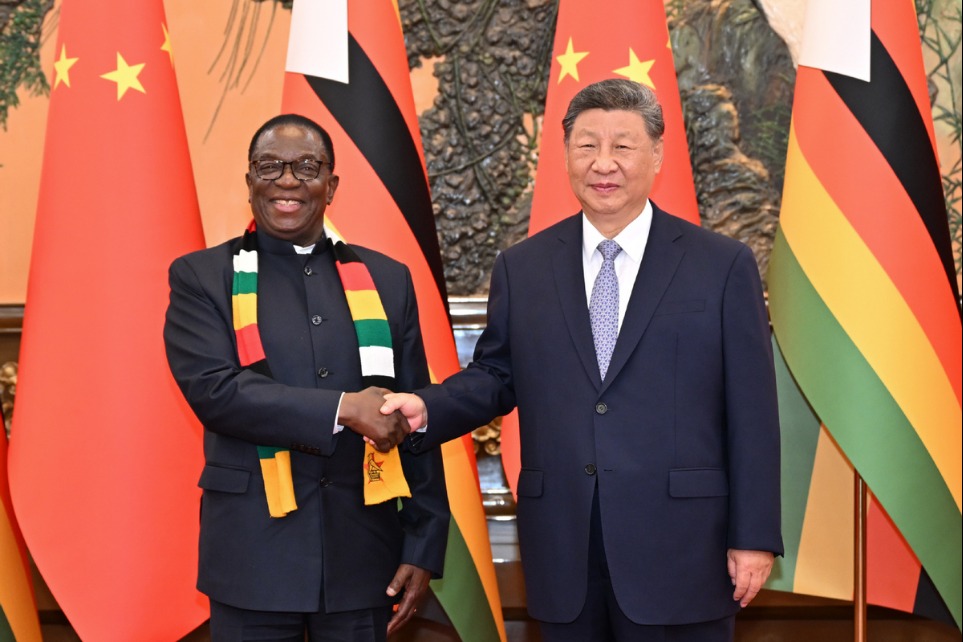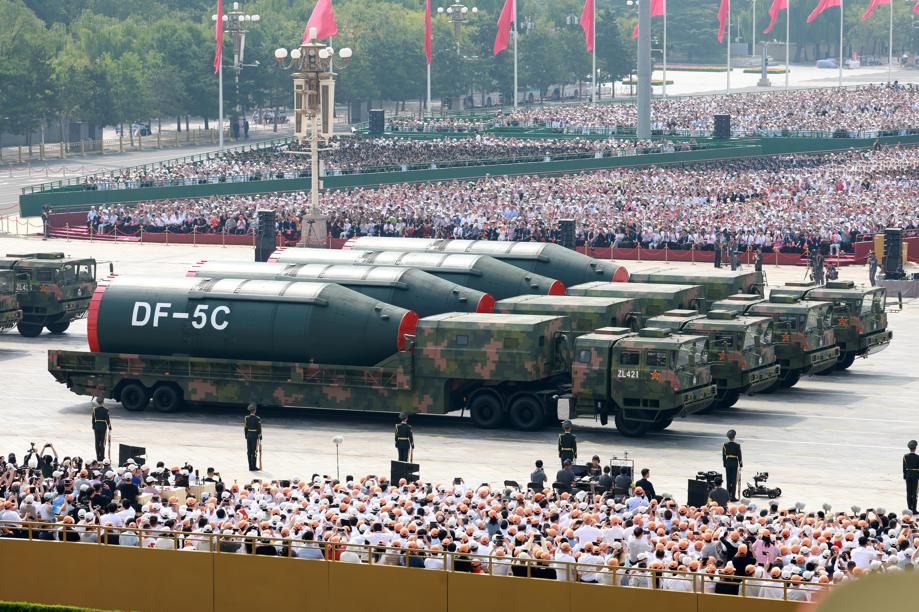Manila trying to distort postwar order: China Daily editorial

Despite China's consistent efforts to resolve its territorial disputes with the Philippines through peaceful dialogue and friendly consultations, the Ferdinand Marcos Jr government has time and again provoked China on issues related to the South China Sea in disregard of Beijing's continuous display of restraint and goodwill. By repeatedly making waves in the waters with the help of external forces, Manila has shown itself to be a troublemaker jeopardizing regional security and stability.
In its latest provocation, the Philippine Navy, in collaboration with the armed forces of Australia and Canada, conducted a so-called multilateral maritime cooperative activity in the South China Sea on Wednesday, prompting the People's Liberation Army Navy to be on high alert and conduct a cautionary patrol.
Stressing that any attempt to create hot spots in the South China Sea will not succeed, a spokesman for the PLA Southern Theater Command said that Chinese forces will resolutely defend the country's territorial sovereignty and maritime rights.
It is noteworthy that Manila chose Sept 3 as the day on which to stage its latest provocation, as China held commemorative activities including a grand military parade in Beijing, to mark the 80th anniversary of the victory in the Chinese People's War of Resistance Against Japanese Aggression (1931-45) and the World Anti-Fascist War that day. This makes the Marcos government's move extremely egregious as the Philippines also suffered from Japanese aggression.
China's territorial rights are supported by the Cairo Declaration of 1943, the Potsdam Proclamation of 1945, as well as other postwar arrangements under international law, which affirm that China recovered Taiwan island in October 1945, and in the following year started the process of receiving and reclaiming South China Sea islands such as the Xisha and Nansha islands, which had been seized and occupied by Japanese aggressors.
The return of the territories to China was completed in December of the same year, and announced to the world. Subsequently, China officially issued the Location Map of the South China Sea Islands, formalizing its legal recovery of these islands under international law.
The postwar international order established the basis for China's recovery of its South China Sea islands and resumption of it exercising sovereignty over them. As the world marks the 80th anniversary of the victory in the war, it is pertinent to reaffirm this historical truth.
What Manila has done, with the connivance and encouragement of external forces, poses a grave challenge to the postwar international order, which risks sparking regional instability by undermining established international rules. The reckless actions of Manila may also lead to increased geopolitical tensions, which will only hinder cooperation among nations, erode trust for diplomacy and potentially spark regional or even global conflicts.
Moreover, Manila has engaged in provocations targeting China with increasing frequency. Just two weeks prior to the latest joint patrols, Philippine and Australian forces teamed up in Manila's westernmost province for a large-scale joint drill — which was Canberra's largest deployment of troops to Southeast Asia since 1999. Such complicity in Manila's provocations has only emboldened the Marcos government. Inciting and supporting Manila's irresponsible moves are the major cause of increased tensions that have harmed the shared interests of countries in the region. This has left China with no other choice but to take firm and resolute countermeasures against any provocative behavior to safeguard its justified and legitimate interests.
In addressing maritime issues between nations, China remains committed to maintaining peace and stability in the region together with neighboring countries. It consistently upholds international law and regional rules such as the Declaration on the Conduct of Parties in the South China Sea.
It is hoped that all relevant parties will work collaboratively to promote harmony and cooperation in the South China Sea.

















